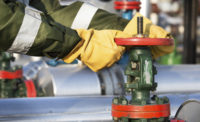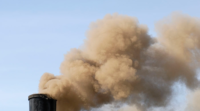
Oil & Gas IQ: In what ways would you say that America’s approach in HSE in offshore safety is different to European counterparts?
H Hopkins: Generally, I’d say regulation in the US is more prescriptive versus more performance-based regulation by our European counterparts. Safe operations are important around the world. Europe and the US are facing a global economic challenge and our ability to produce oil and natural gas can be a big boost for fuelling our economy. In the US, new leases could generate billions of dollars in government revenue in just seven years if energy companies are allowed to get back to work in the Gulf to pre-Macondo levels.
Oil & Gas IQ: What has the API been doing to update its policies?
H Hopkins: Immediately after the incident, API led the industry in forming four joint industry task forces to examine every aspect of its safety systems, including equipment, operating procedures, sub-sea well control and spill response.
The industry issued, and subsequently revised, an industry standard dealing with cementing operations and we are now completing work on two new standards: one on deep water well design construction and one on well construction interface, which is a bridging document between the operator and drilling contractor on a well by well basis. In addition, several other API documents are being revised, based on lessons learned from the incident, including documents from BOP design, manufacture and operations.
The industry has developed the capability to address the unique challenges of capping a well that is releasing oil thousands of feet below the water surface. The Marine Well Containment Corporation and the Helix Well Containment Group both provide containment technology and response.
In the wake of any spill response, we always look for ways to improve and we have formed more than 25 individual groups to look at various aspects of spill response, such as mechanical recovery, dispersants, oil spill plans and others. These groups have completed their initial assessments, identified what worked well, and have now begun to address any areas where improvements can be made.
API also announced the creation of the Centre for Offshore safety, which will bring our best minds and expertise together to further help operators strive for and maintain the highest levels of safety performance. The centre will apply the best elements of the most successful existing safety programmes and will rely on independent auditing and certification by third parties.
Oil & Gas IQ:How are the API approaching major challenges in HSE?
H Hopkins: API and industry are committed to a goal of zero fatalities, zero injuries and zero incidents. Our industry takes any safety or environmental incident as an opportunity to learn and to improve technology, training, operational procedures, industry standards and best practices.
Oil & Gas IQ: How much of a wakeup call was Macondo for the oil and gas industry in the United States?
H Hopkins:It was a huge wakeup call. Obviously, we always strive to operate safely; this gave us our chance to go back and look at all of our operations and make improvements where they could be made and to raise industry standards and best practices across the board.
Oil & Gas IQ:I guess, with regards to HSE, there are these periodic events - be it an Ocean Ranger or a Piper Alpha or a Macondo - that really bring HSE to the fore. Does Oil and Gas still need this periodic wakeup call? Shouldn’t we be awake the whole time?
H Hopkins: We certainly should. We strive for zero fatalities and zero injuries and zero incidents, and we are always looking at our industry best practices and standards and revising them.
Unfortunately, you’re correct; tragedies usually highlight and bring to the forefront our shortcomings or those things that we could do better, so they do serve as an opportunity for lessons learned. It is unfortunate that tragedies do have that unintended consequence, but we’re always working to improve and bring about the best standards and operating practices that we can. I do think that, while we are continuously improving, these events do tend to put the spotlight a little brighter than they would normally.




